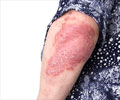Children who are exposed to people infected with multidrug resistant tuberculosis may benefit from prevention programs, suggest study.
Prevention is always better than cure especially in the case of fatal diseases where the causative agents remain resistive to many therapeutic drugs and the treatment is expensive.Multidrug-resistant (MDR) Mycobacterium tuberculosis with a high mortality rate is highly resistant to the standard drugs, rifampicin and isoniazid, commonly used to treat the tuberculosis disease.
Exposure to MDR Mycobacterium tuberculosis makes the children highly susceptible to infection, which progresses to disease within a year in 90% of the cases. Infants with HIV infection are 20 times more likely to acquire the tuberculosis disease. This had prompted a team of researchers to explore the available treatment options, methodologies and guidelines to prevent the disease in children exposed to MDR tuberculosis bacterium.
According to the review a prevention program is more beneficial to children living under the same roof along with the person infected with MDR tuberculosis disease.
The risk factors for contracting the disease is estimated using tuberculin skin test (TST) and interferon-γ-release assays, degree of exposure to the MDR Mycobacterium tuberculosis and drug susceptibility of the bacterial strain.
The various International guidelines for prevention of the disease in children who are in close proximity with patients inflicted with the MDR tuberculosis disease are as follows.
• The National Department of Health of South Africa recommends a high-dosage (15 mg/kg) of isoniazid to children below 5 years.
The authors also recommend a high dose of isoniazid for a period of six months.
Parents and children need to be counseled about the benefits of the preventive treatment and the need to follow the prescriptions for the treatment to be successful.
HIV infection in children influences the initiation of the preventive program for MDR tuberculosis. When the child is simultaneously diagnosed with HIV infection and exposed to MDR tuberculosis bacterium, it is suggested to begin the preventive treatment before the initiation of the antiretroviral treatment.
Children infected with HIV often suffer from chronic diarrhoea, which could affect the absorption of MDR Tuberculosis Preventive treatment and HIV treatment.
The adverse effects of the drugs, other factors influencing the treatment in children still remain unexplored.
With MDR tuberculosis disease rising at an alarming rate the experts feel there is a critical need for in-depth research to assess the effectives of the drugs and treatment in order to control the disease.
Reference: Management of children exposed to multidrug-resistant Mycobacterium tuberculosis; The Lancet Infectious Diseases Feb 2012.
Source-Medindia















